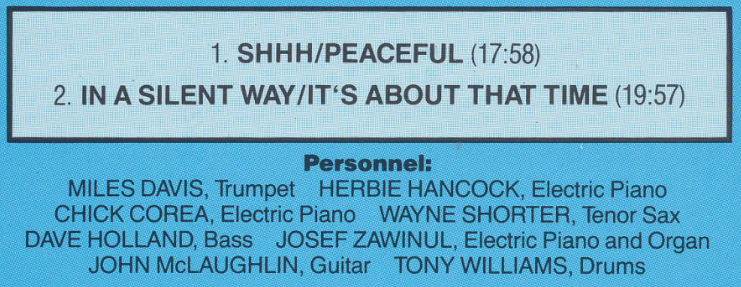2016 — 13 April: Wednesday
If you like watching and hearing Julie Andrews as much as I do,1 live within reach of the BBC iPlayer and a command line, and happened (like me) to be doing something else on 28th December 2014, this might be a useful string of 39 characters:
get_iplayer --vmode=best --pid=b04w7vyq
It was the first time I'd ever seen and heard Blake Edwards, in a 1974 "Parky" interview with the husband and wife double act. I also snaffled a nice retrospective examination of David Gilmour, plus all three "Re-Assembler" programmes (who could resist the allure of watching a Colt lawn-mower being put back together by an amiable clot?) and a promising film about Hockney. That's my ration of broadcast TV sorted until it next occurs to me that I may have "missed" something worthwhile.
Bright sunshine...
... is beckoning to me. (It's saying "Just look at all this dust, David!") though I fear I prefer to attend to the kettle. And "Late Junction" plays on, courtesy of the NUC. Can you believe I only discovered yesterday (on re-reading more carefully a recent email from Zeno) that you can simply drag and drop files across the NoMachine remote desktop link to copy stuff from one PC to another across my LAN? It had never even occurred to me to try such a simple thing. Twit!
Nicely put
I'd never pondered the economic basis of the seven dwarves' arboreal lifestyle, either!
One thing we've learned is that rich people aren't even rational: they can afford to live in the Cayman Islands and leave their money here. Instead, they make their money go on holiday so they can live in perpetual rain, like the way the dwarves in the Snow White movie kept all the diamonds and lived in the forest.
It's a vicious read. Well worth it. [Pause] Having just recognised John McLaughlin's guitar — on a brief extract from the track that is (apparently) the favourite of Mike Figgis — I've just kicked off my 1969 Miles Davis album "In a silent way". Bliss. Just look at the line-up!

(I'm valiantly ignoring the inverted apostrophe.)
Clear-eyed analysis...
... of ISIS and its roots (and behavioural precedents) in Western history since the so-called "Enlightenment" is horribly depressing. Source and snippet:
The increase of knowledge in recent centuries is real enough, as is the enlargement of human power through technology. These advances are cumulative and accelerating and, in any realistically likely scenario, practically irreversible. But there have been few, if any, similar advances in politics. The quickening advance of science and technology in the past few centuries has not gone with any comparable advance in civilization or human rationality. Instead, the increase of knowledge has repeatedly interacted with human conflicts and passions to produce new kinds of barbarism.
"Ain't dat da Trut'?" I recall an assertion (probably in an old "New Scientist") that of all the scientists, technicians and engineers in recorded history, 99% of them were alive and kicking right now. Then there's this:
If ever the last 50,000 years of man's existence were divided into lifetimes of approximately 62 years each, there have been about 800 lifetimes. Of these 800 at least 650 were spent in caves. Only during the last seventy lifetimes has it been possible to communicate effectively from one lifetime to another — as writing made it possible to do. Only during the last six lifetimes did masses of men ever see the printed word. Only during the last four has it been possible to measure time with any precision. Only in the last two has anyone used an electric motor. And the overwhelming majority of all material goods we use in daily life have been developed within the present 800th lifetime.
I had thought this was from a NASA report on Technology Transfer2 in the mid-60s... but then it popped up again, in the late Alec Guinness' Commonplace book, attributed to Hans Küng of all people.
Found some!
Now I shall be able to take my little hunk of "twisted" wood up to the next decorative level. Having, that is, paid careful heed to the warning in the small print. Click the pic for that little nugget of info:
Better not polish too hard, I guess!
I grabbed...
... a Chinese takeaway lunch on the way home, which (as usual, which is why I do this so very rarely) provided far more than I can comfortably eat. The PC network has been stripped and re-built, much more "cleanly", and I've now taken the Rotel pre-amp out to seek out any s/w upgrades. Nothing doing, it seems. I've also been exhorted to vote to stay in the EU by an organisation that thinks (mistakenly) that I would be impressed by comments from Sir Richard Beardie-bloke, a former leading copper, the boss of EasyJet, a former leading farmer, a "leading business figure" I've never heard of, or the LSE. My instinct is to stay in, but to continue to curb the inexorable rise of the EU bureaucrats.
Frankly, I found the new issue of "Linux Voice" far more interesting.
My word, I haven't used (or thought about) NetSurf since my RISC OS days! It's very fast indeed on 'molehole' pages from AWS though its JavaScript is a tad, erm, iffy on my "Magic Thumb" image zoomer. Of course, if I want the latest build I'll just have to compile the source, dagnabbit. Not surprisingly, the Mint repository is four years behind this particular curve, still stocking 2.9 when 3.4 is now out in the wild.
I've been playing...
... the rather fabulous new(-ish) two-mic bluegrass album by the Punch Brothers — "The Phosphorescent Blues" in case you can't quite make it out — (nice Magritte cover art, by the way)...

... while also updating my Pi2 webserver's Raspbian (untouched, but running more or less continuously [there was a transient mains power glitch several weeks ago] since I last logged into it last December). Out of sight up in Peter's room, out of mind (as it were).
[Pause]
"Mendoza in Hollywood" was superb. Now, on to "The Graveyard Game".
